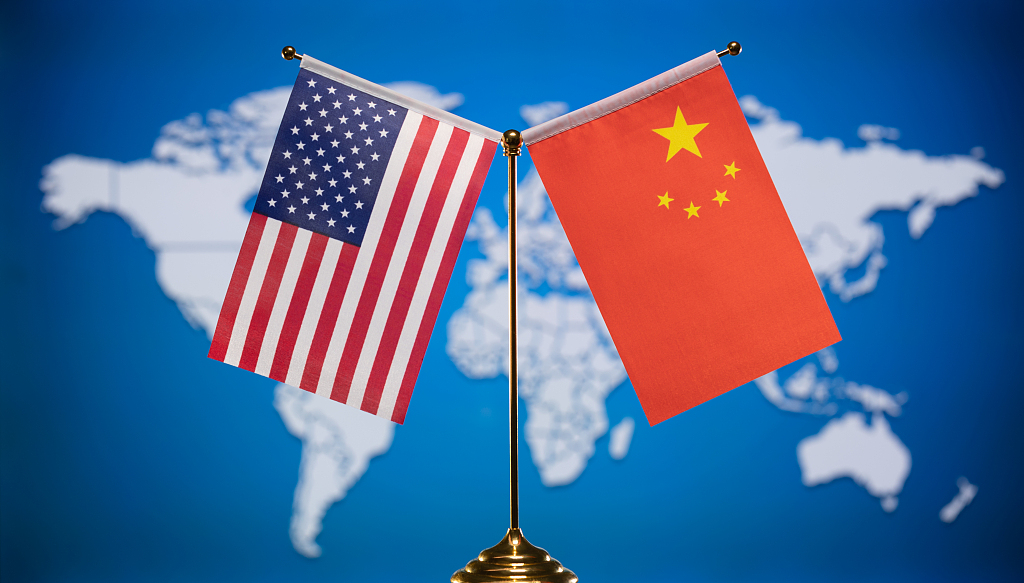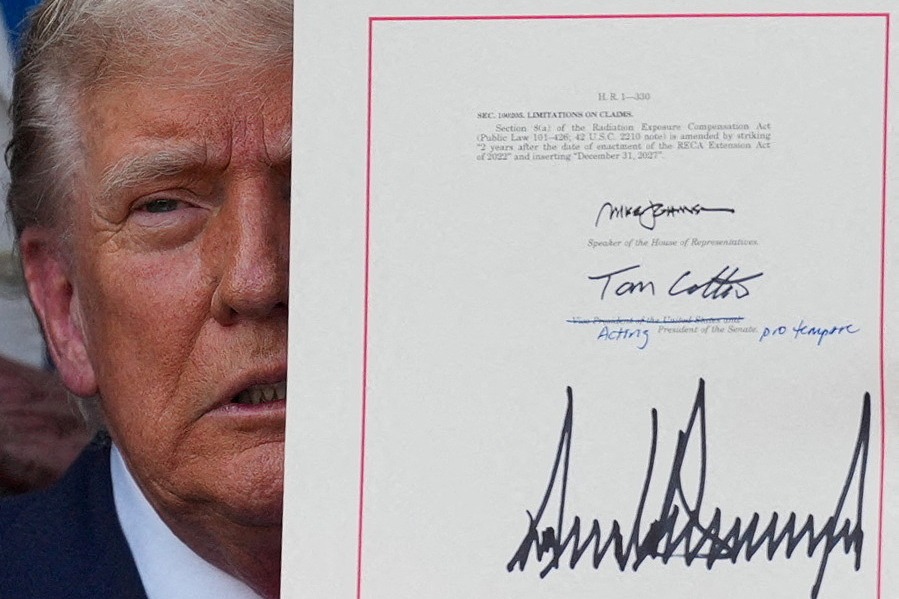US' China policy will not 'Make America Great Again'


More than a decade ago, the government and the opposition in the United States began to question whether the "engagement" policy for China should be maintained. The voices calling for "disengagement" and "decoupling" from China have only grown louder since.
About eight years ago, the first Donald Trump administration began designating China as a "strategic competitor" that the US had to contain. The belief was that if China could not be defeated, "Make America Great Again" would remain a hollow slogan. So the first Trump administration embarked on an unprecedentedly fierce trade and technology war against China, seriously damaging bilateral relations in the process.
The succeeding Joe Biden administration not only adopted the "disengagement" policy, but also launched its own "small yard and high fences "policy, stepping up efforts to curb China's technological rise.
Trump 2.0's hostility toward China, now regarded as the US' "No 1 strategic adversary", is worse than before. Containing and isolating China has become the top priority of US domestic and foreign policy. However, the US long lost the ability to defeat China militarily. Curbing China's rise through military action is no longer an option. So now Washington wants to suppress China in all nonmilitary arenas.
Trump 2.0 lost no time in launching a vicious global tariff war, with China as the primary target. Washington intensified its technological blockade against Beijing, and threatened and targeted Chinese scholars and scientists in the US. It also explicitly asked its NATO allies, as well as Japan and South Korea, to significantly increase their military spending, and attempted to weaken or undermine international organizations through various means.
The US also made territorial claims on other countries such as Canada, Denmark and Panama in violation of international law on national sovereignty and territorial integrity, while moving to reduce its strategic commitments outside the Asia-Pacific region. The so-called big, beautiful bill includes enormous military spending.
It's evident that the "China factor "is highly pronounced in US domestic and foreign affairs. However, objectively speaking, the Trump administration's various irrational and impractical policies to contain, harm and isolate China will not make the US great again.
First, ever since Trump 1.0 launched a trade and technology war, China has strengthened its policies and capabilities to reduce its dependence on the US and significantly improve its countervailing power. The tariff and technology war launched by Washington against China exposed the US' serious misjudgment of China's national strength, its underestimation of China's counterattack capabilities, its underrating of the US' dependence on China, and especially its overestimation of the US' actual strength.
China's various measures, especially the export control of rare earths and critical minerals, dealt blows on the US economy, particularly its high-tech and military enterprises. The US failed in the tariff and technology war it started and has had to withdraw most of its sanctions against China in exchange for China's lifting of some sanctions against the US.
Second, China's moves in the tariff and technology war have greatly encouraged other countries to resist US bullying. Since the US still has a vast domestic market and the dollar remains a prime international currency, some countries may have to make concessions or feign to comply with its demands. Still, they could refuse to sacrifice their fundamental interests excessively or incur internal turmoil. More importantly, compared with the US, China is the primary trading partner of more countries. The Chinese market continues to open to outside players, while the US market is shrinking due to its protectionism and unilateralism.
After weighing the pros and cons, most countries are likely to withstand US pressure and maintain economic and trade relations with China. In the long run, more nations will strengthen economic and trade cooperation with countries other than the US to reduce their dependence on its market. China, with its vast market and development potential, is their first choice for cooperation.
Third, Trump 2.0's unpredictable, arbitrary and predatory political style has seriously eroded the US' reputation and credibility, injecting considerable uncertainty into the world. Some US scholars even described their country as a "rogue state". The US is now suffering from dwindling soft power, making it challenging for it to play a leading role in uniting countries to jointly contain China.
Fourth, the US' security commitments to other countries are becoming increasingly unreliable. Many countries, including US allies, are strengthening their military capabilities to reduce their dependence on the US, making it difficult for Washington to dictate to them. This will undoubtedly weaken US hegemony. More countries will be eager to strengthen relations with China, expanding its circle of friends.
Fifth, dollar hegemony will be increasingly strained because the US is determined to be an adversary of China. To mitigate the risk of a potential financial war by the US, China has accelerated the pace of renminbi internationalization and reduced its reliance on the US dollar. The "Big, Beautiful" federal budget will significantly increase the US' debt burden and further balloon its fiscal deficit. The tariff war is likely to trigger inflation in the country. These circumstances will erode international confidence in the dollar and weaken dollar hegemony.
Sixth, US society has long been seriously divided. Trump 2.0's various policies aimed at containing China will exacerbate the polarization of the US, especially since Trump betrayed his election promises to its people, causing vulnerable groups to suffer from inflation and declining living standards. Major social divisions and conflicts, as well as the life-and-death struggle between the two big political parties, will sap the country's vitality and render US democracy an object of ridicule, ultimately castrating the US' global soft power and leadership.
Ultimately, the US' reluctance to engage with international organizations and agreements enables China to assume a more prominent leadership role in global governance, promote reform within international organizations, and have its proposals on global development and governance more widely endorsed by other countries, thereby enhancing China's international reputation and influence.
All in all, Trump 2.0's decision to prioritize containing China in its domestic and foreign policy will not "make America great again" but is likely to expedite its decline.
The author is a professor emeritus of sociology at the Chinese University of Hong Kong and a consultant to the Chinese Association of Hong Kong and Macao Studies.
The views do not necessarily reflect those of China Daily.

































